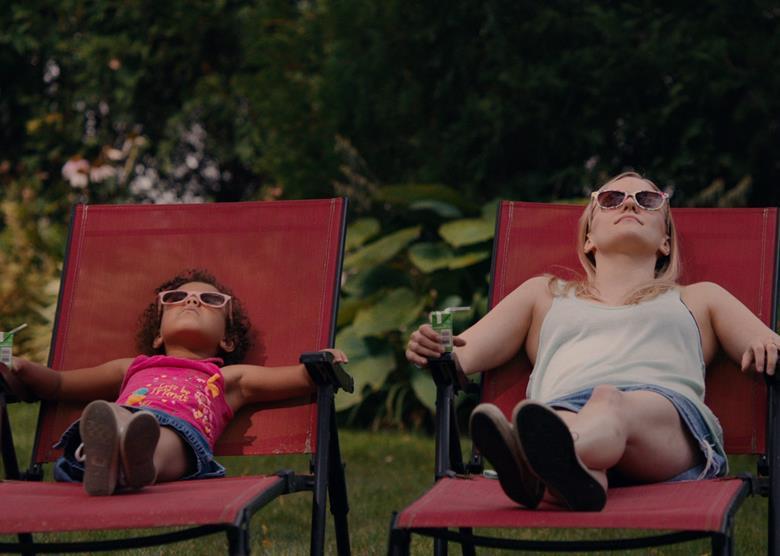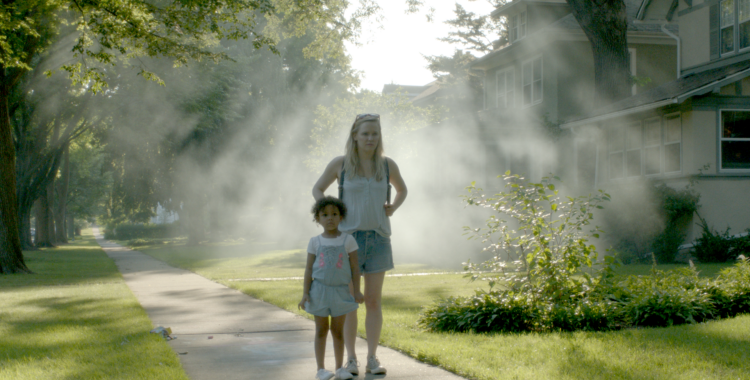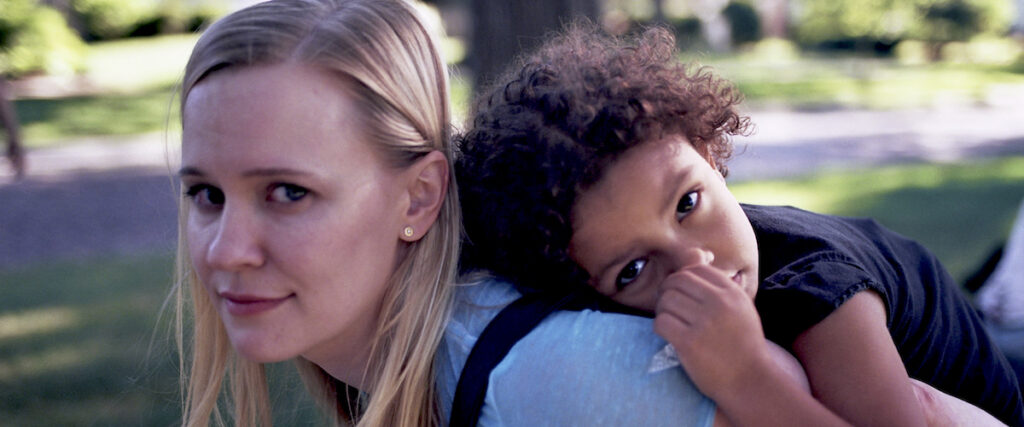On paper, Saint Frances is a hard sell: does the world really need another softly-lit indie about a deadbeat 30-something who forms an unlikely bond with a cheeky, precocious kid, subsequently finding a new perspective on life? Not really, no, but the filmmakers inject this premise with enough fresh ideas and genuine warmth to more than justify their efforts and mark themselves out as a serious talent to watch in the future.

The plot follows Bridget (played by screenwriter Kelly O’Sullivan), a once promising but now directionless 34-year-old, as she embarks upon a promising new job and a slightly less promising new on/off relationship over the course of the summer months. After a night with new fella Jace, Bridget becomes unexpectedly pregnant and decides to have an abortion. As the summer progresses, she grows closer to her new charge, the eponymous Frances (Ramona Edith Williams) and her parents Maya (Charin Alvarez) and Annie (Lily Mojekwu), and Bridget is forced to – in Frances’ words – “think about her choices”, finding solace and companionship within her unconventional, temporary family.
There is a moment roughly halfway into Saint Frances that sums up the movie rather nicely: in an effort to soothe her daughter’s fears about raising children, Bridget’s mother calmly explains how she used to fantasise about beating her infant daughter’s head against a wall in order to stop her crying. “Then I would feel so bad about imagining it that I never went through with it”, she reasons. Bridget is horrified, responding “You probably shouldn’t tell people that story.” Nonchalantly, her mother replies “Women should talk about it more often. It wouldn’t be as lonely.” And talk about it they shall.

Women’s issues are the driving force behind this small, efficient story: topics like same sex parenting, breast feeding in public, bodily autonomy, inconveniently timed periods (so many inconveniently timed periods), postpartum depression – and even stress incontinence – are all dealt with maturely and with sharp observational humour, as our heroine bobs and weaves through an equal mix of humiliations and tender moments. Many of these uncomfortable issues are often side-lined or completely ignored in cinema, whereas here they are placed front and centre, propelling and deepening the narrative in a way that feels organic. The cast are consistently impressive, but newcomer Ramona Edith Williams steals most of the film’s laugh-out-loud moments, delivering her lines with a confident curiosity that always feels beautifully genuine.
Saint Frances is unapologetic about its pro-choice stance, and for the most part goes about arguing that point with sensitivity and empathy, without shying away from the unglamorous, painful steps involved in the process. It will likely divide audiences, but it’s a testament to the deftness of O’Sullivan’s script that the unsentimental approach to de-mystifying the steps involved (mostly) does its job without lapsing into bad taste. It is also worth mentioning that while Bridget is strong willed, decisive and in control of her actions, she is also – on occasion – irresponsible, a little callous and full of self-loathing. She is far from perfect and through her, the movie suggests that life is a continuous process of failing and learning, and there are no magic answers to the bigger questions.

There will inevitably be those who will say this film is pushing a political agenda – which is a shame – because although the film ticks many “woke” checkboxes, Saint Frances is at its core a sincere, funny, yet surprisingly unflinching exploration of sisterhood and motherhood in all its forms. Considering the seemingly contrived set-up, Saint Frances stands apart from the pack with its naturalistic, authentic performances, bone-dry sense of humour, unapologetically feminist politics, and universal messages of empathy and self-improvement.
Saint Frances it out July 17th.
